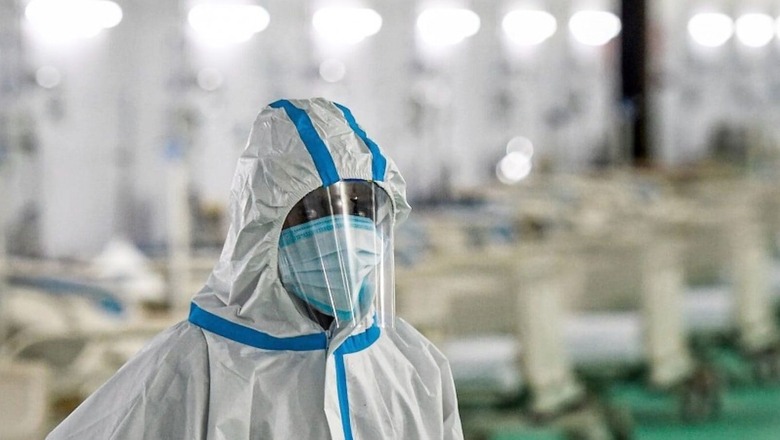
views
A study on Covid-associated mucormycosis, spanning patients from 11 hospitals across five states in northern India, has suggested that timely diagnosis along with early surgical and medical management offered better chances of survival for them, a leading healthcare group said on Thursday. The study was based on clinical profile of Covid-associated mucormycosis (CAM cases during the second wave of the coronavirus pandemic from March-July this year at units of the Max Healthcare group, it said.
CAM became a disease of epidemic proportions in several Indian states during the second wave of the COVID-19 pandemic. Mucormycosis or black fungus is more common among people whose immunity has been lowered due to Covid, diabetes, kidney disease, liver or cardiac disorders, age-related issues, or those on medication for auto-immune diseases like rheumatoid arthritis.
The key findings of the study suggested that "timely diagnosis along with early surgical and medical management offered better chances of survival for patients in the face of an otherwise fatal disease". The study is presently uploaded in Medrxiv and is not yet peer reviewed, Max Healthcare group said in a statement.
While diabetes and use of steroids emerged as clear risk factors, the study suggested that there is a need to explore other causations for CAM, including direct role played by SARS-CoV-2, it said. Although India always has had highest reported numbers of mucormycosis in the world, physicians never reported it as much as occurred during the second wave of the pandemic, the group claimed. Commonly referred to as black fungus, mucormycosis is caused by a group of moulds called mucormycetes and is a potentially fatal infection if inadequately treated, doctors said.
India contributed to approximately 71 per cent of the global cases of CAM based on the published literature from December 2019 to the start of April 2021, the healthcare group claimed. "Until May 19, 2021, approximately 5,500 people were affected with CAM in India, resulting in 126 casualties," the statement said.
Max Healthcare's Group Medical Director, Dr Sandeep Budhiraja said, "In moderate and severe cases of COVID-19, the immune system is severely compromised, leading to a severe form of angio-invasive COVID-19 associated mucormycosis (CAM) which has a mortality rate of as high as 80 per cent if a patient goes untreated or remains untreated long, and even after treatment, mortality still could be 40-50 per cent". The fungus thrives in uncontrolled diabetics with ketoacidosis as well as in patients with recent steroid use. The most plausible explanation for this recent surge in mucormycosis cases is believed to be the unparalleled, irrational and prolonged use of steroids in COVID-19 patients, the doctor said.
"The Delta variant of the SARS-CoV-2 virus and prolonged ICU stay maybe another reason for higher cases of mucormycosis. Use of industrial oxygen in the wake of an acute shortage of oxygen in hospitals may have contributed to this huge case load," he added. The retrospective, observational, multi-centre study included all the cases recorded as mucormycosis either at discharge or at death, between March 1 and July 15 in the network of hospitals in north India. Their records were retrieved from the electronic health records system and their demographic and clinical profile, the hospital course, and the outcome were noted, the group said.
The patients were classified into "proven, probable or possible mucormycosis" categories, as per the case definition suggested by the European Organisation for Research and Treatment of Cancer (EORTC) and the National Institute of Allergy and Infectious Diseases Mycoses Study Group (MSG), the statement said. For the purpose of the study, the characteristics studied were age, sex, symptoms, disease severity, and presence of diabetes. Details of COVID-19 disease in terms of diagnostic modality, place of treatment (home or hospital), need of oxygen and use of steroids were also recorded. The interval between diagnosis of COVID-19 and admission to hospital for suspected mucormycosis was also calculated, the statement said.
"A total of 155 cases of mucormycosis were found, either those who were discharged or had died, at the Max network hospital during the period of the study. More than two-thirds (69 per cent) were males. The mean age of the patients was 53.2 years. "Commonest symptom (64.5 per cent) in these cases was related to nose and jaw, most (36.8 per cent) of these had facial pain and paraesthesia. The next common symptom was related to eyes, reported by 42.6 per cent cases. Among other symptoms, headache was reported by 22.6 per cent and fever by 21.3 per cent," Budhiraja added.
The hospital course for the need of oxygen and mechanical ventilation, and treatment in terms of usage of antifungal (amphotericin B and posaconazole), antibiotics, and surgery was retrieved as well. The diagnosis was finally confirmed from the histopathological report of the surgical specimen in the cases that underwent surgery. The outcome under study was in-hospital mortality, the statement said. Of these, 45 (29 per cent) cases were of patients admitted in ICU, where they had a mean length of stay 16.9 days, it added.
The other 20 patients (12.9 per cent) did not undergo any surgery as decided by the treating surgeon, the healthcare group said.
Read all the Latest News , Breaking News and Ukraine-Russia War Live Updates here.




















Comments
0 comment